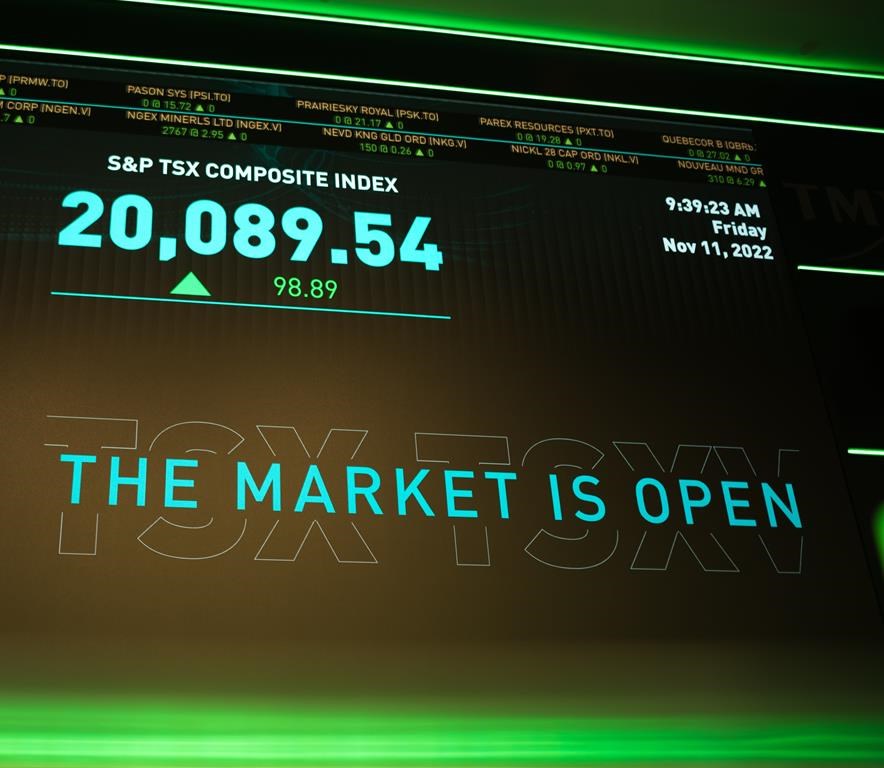Canada’s main stock index fell more than 150 points Monday, weighed down by losses in the energy sector as the price of oil sank, while U.S. stock markets were mixed.

The S&P/TSX composite index closed down 152.43 points at 22,116.69.
In New York, the Dow Jones industrial average was down 115.29 points at 38,571.03. The S&P 500 index was up 5.89 points at 5,283.40, while the Nasdaq composite was up 93.65 points at 16,828.67.
A new report found the U.S. manufacturing industry slowed in May for the 18th time in 19 months.
“That created a bit of a negative backdrop for stocks in the U.S., but it’s good for bonds,” said Lesley Marks, chief investment officer of equity at Mackenzie Investments.
Despite weaker data in some areas of the economy, like manufacturing, the U.S. Federal Reserve is particularly focused on inflation data as it weighs when to start cutting interest rates, said Marks.
“It is, I think, fair to say that given their focus on inflation, that they do not have the data that they need today to support a rate cut at this time,” she said.

Get breaking National news
The end of the week will bring fresh labour force data, which is also an important part of the Fed’s calculations.
First-quarter earnings season, which is essentially over, “created a lot of positive tailwinds for investors,” said Marks.
“And so now … our primary focus is on what central banks are going to do.”
The European Central Bank also looks poised to start cutting this week, she added.
In Canada, markets eagerly await Wednesday’s rate decision from the Bank of Canada.
The economic data has increasingly supported a start to cuts this week, said Marks, especially last week’s slower-than-expected GDP report.
“That confirmed that the Canadian economy is slowing and it needs a boost from the Bank of Canada,” she said, adding that the market will be surprised if the central bank doesn’t announce a cut this week.
“That will obviously mark the beginning of the Bank of Canada’s easing cycle. And then everyone will turn their attention to what happens next.”
The Canadian and American economies have been slowly diverging, said Marks, in their data and in the subsequent expectations for interest rate cuts.
“The Canadian economy has been faced with more headwinds, and the U.S. has certainly surprised on the upside,” she said.
Also weighing on markets Monday was a drop in the price of oil. The TSX energy index was down more than four per cent as a result.
The drop was likely due to the news out of OPEC over the weekend, said Marks, and in particular a signal that in 2025 the OPEC Plus countries will begin phasing out the extra production cuts announced last year.
“This is going to impact the supply and demand balance for oil,” she said.
The July crude oil contract was down US$2.77 at US$74.22 per barrel and the July natural gas contract was up 17 cents at US$2.76 per 1,000 cubic feet.
The August gold contract was up US$23.50 at US$2,369.30 an ounce and the July copper contract was up seven cents at US$4.67 a pound.
The Canadian dollar traded for 73.34 cents US compared with 73.33 cents US on Friday.
— With files from The Associated Press







Comments